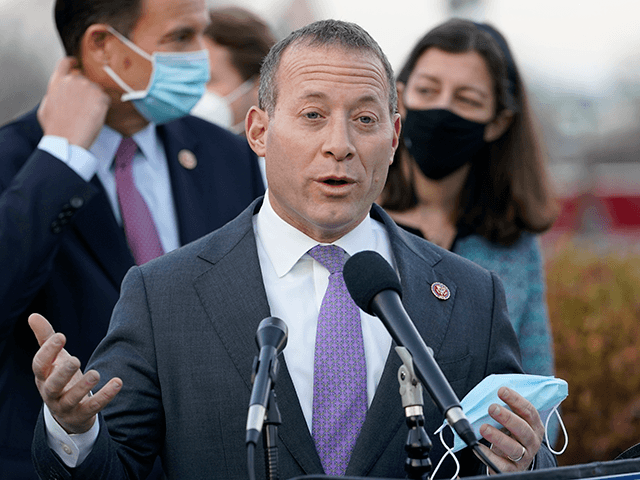Rep. Josh Gottheimer (D-NJ) revealed Tuesday the moderate wing of the Democrat Party is “not interested” in their leadership’s strategy of passing the hard left’s agenda items without trying to attain Republican support.
“We’re not interested in just passing a bunch of partisan bills that sit in the Senate without action,” Gottheimer said. “There’s a feeling among many of us that we’re here to govern. The issues are far too important, and it will take bipartisan work to make it happen.”
House Speaker Nancy Pelosi’s (D-CA) chamber is ready to focus on new legislative pushes after its passage of the $1.9 trillion coronavirus relief bill, which may include LGBTQ priorities, law and order reform, women’s compensation, the Violence Against Women Act, the Dream Act, an amnesty bill, voting rights, and two gun bills.
Pushing through the hard left’s agenda in the House of Representatives is easier than in the Senate, where at least 10 Republicans are needed to pass legislation.
“You disincentivize action when you legislate that way,” Gottheimer, a co-chair of the bipartisan Problem Solvers Caucus, said.
The alternative would be for Democrats in the House to work on bills through the committee process and allow Republican amendments and negotiations, giving responsibility to committee chairs to write legislation that can get bipartisan support instead of bills that simply include what progressives want.
Rep. Veronica Escobar (D-TX) agreed, saying, “We should be as bold and ambitious as our caucus will bear in the House,” and added, “We should not negotiate against ourselves.”
But one House leader pointed to polls instead of the voting rolls to defend the approach.
“We believe these bills enjoy overwhelming support among Democrats, Republicans and independents among the American people — frankly, we don’t know why that support, particularly in terms of Republican support, doesn’t translate to the members of the House or the Senate,” House Majority Leader Steny Hoyer told reporters Tuesday.
The dissonance between the moderate Democrats and their leadership must resolve itself by engaging in bipartisanship or accomplishing the president’s campaign promises.
An analogous situation played out Friday when the House voted on the coronavirus package in the dead of night by a vote of 219 to 212 with no Republican support and two Democrats voting against it.
Rep. Kurt Schrader (D-OR) and Rep. Jared Golden (D-ME) crossed party lines and voted to reject the bill known as the American Rescue Plan, which only allocates nine percent of the bill’s funding towards fighting the coronavirus.
Golden said in a statement, “Unfortunately, the path congressional leaders have chosen goes far beyond these key provisions, to the tune of hundreds of billions of dollars.”
“After supporting $4 trillion in emergency COVID relief in 2020, I won’t support trillions more in funding that is poorly targeted or in many cases not necessary at this moment in time,” he stated.

COMMENTS
Please let us know if you're having issues with commenting.